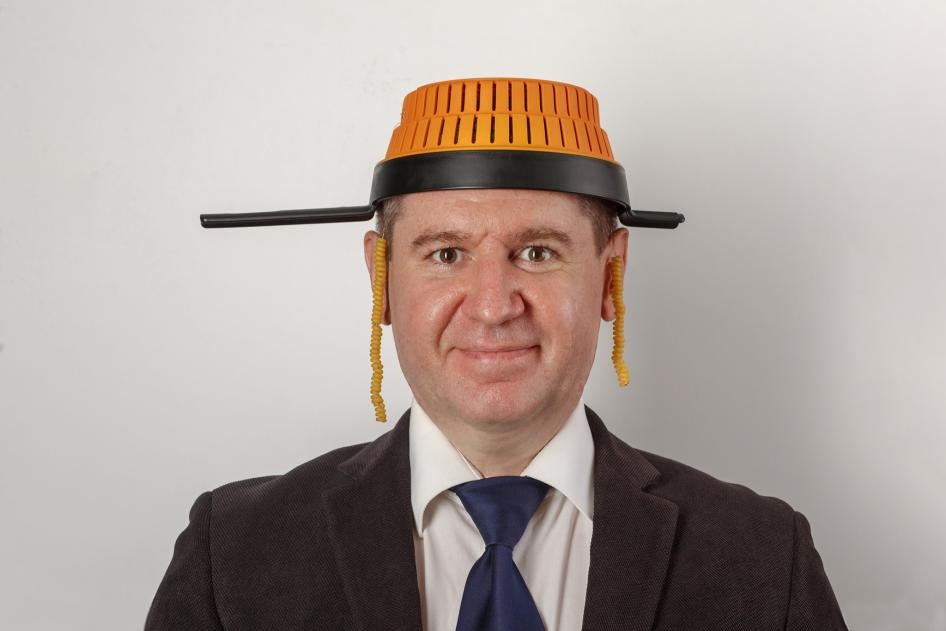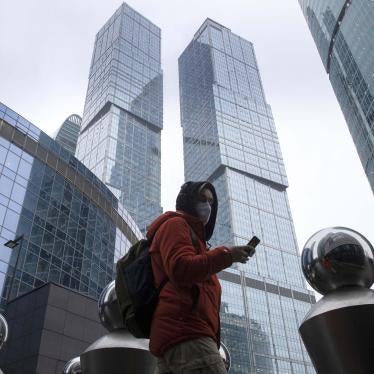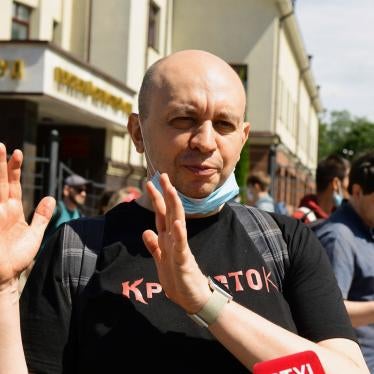Update: On February 28, detention of Mikhail Iosilevich was extended for another month until March 28, 2021.
In 2019, Anastasiya Shevchenko was the first person to be criminally charged for involvement with an “undesirable” foreign organization. Yana Antonova’s case was the first to move to court, and Maxim Vernikov was the first to be sentenced.
Now Mikhail Iosilevich, an entrepreneur from Nizhniy Novgorod, has set yet another first: the first person placed in pre-trial detention under this deeply repressive law.
Once designated “undesirable” under the law, an organization must cease all activities in Russia, and anyone deemed to be involved with it can be held criminally liable.
Iosilevich owns a space called “The Place,” which provides a venue for civic society events — lectures, debates, and performances.
Iosilevich’s ordeal started on October 1, when police raided his apartment and those of six other civic activists in Nizhniy Novgorod. Police later interrogated them as witnesses to Iosilevich’s alleged involvement with an “undesirable organization.” A court ordered him not to leave the city.
The “undesirable” organization in question, Open Russia, is a public movement, authorities accuse of being affiliated with Mikhail Khodorkovsky, an exiled former oil tycoon.
The authorities claim Open Russia used The Place for an event in September 2020 that was in fact held by Golos, an election watchdog. Iosilevich previously received two administrative fines for Open Russia’s alleged uses of The Place.
Iosilevich’s lawyer posted on social media that on October 5, one of the witnesses against Iosilevich, Yaroslav Grach, effectively retracted his statement.
Shortly after this, Iosilevich submitted a written statement to police rescinding any cooperation with Open Russia, which is legal grounds for discontinuing such charges. But the investigator ignored it.
On January 29 police issued an arrest order against Iosilevich, claiming that Grach had complained of receiving telephone threats.
Iosilevich’s friend, German Kniazev told me that Grach received prank calls, including threats, after retracting his statement. Grach reported it to police, who took no action at the time. Instead, in January police arrested Iosilevich, claiming that Grach retrospectively recognized his voice.
During Ioselevich’s remand hearing, police refused to play the recording of the call, and the court denied the defence’s motion for audio expertise.
On January 30, Iosilevich was placed in pretrial detention until the end of February. His lawyer expressed serious concerns about conditions in detention.
Next week, after two years under house arrest, Shevchenko will receive her verdict. The prosecution demanded a 5-year prison sentence. Imprisoning her would be outrageous. It also would not augur well for Iosilevich.










